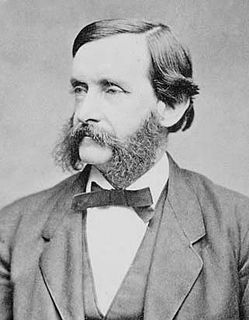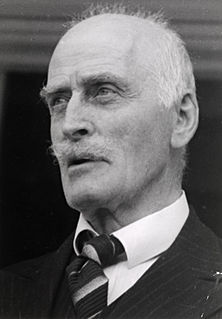A Quote by Felix Morley
In other words, the problem of empire-building is essentially mystical. It must somehow foster the impression that a man is great in the degree that his nation is great; that a German as such is superior to a Belgian as such; an Englishman, to an Irishman; an American, to a Mexican: merely because the first-named countries are in each case more powerful than their comparatives. And people who have no individual stature whatever are willing to accept this poisonous nonsense because it gives them a sense of importance without the trouble of any personal effort.
Quote Topics
Accept
American
Any
Because
Building
Case
Countries
Degree
Each
Effort
Empire
Englishman
Essentially
First
Foster
German
Gives
Great
His
Importance
Impression
In Other Words
Individual
Man
Merely
Mexican
More
More Power
Must
Mystical
Named
Nation
Nonsense
Other
People
Personal
Poisonous
Powerful
Problem
Sense
Somehow
Stature
Superior
Than
Them
Trouble
Whatever
Willing
Without
Words
Related Quotes
I hear people everywhere saying that the trouble with our time is that we have no great leaders any more. If we look back we always had them. But to me it seems there is a very profound reason why there are no great leaders any more. It is because they are no longer needed. The message is clear. You no longer want to be led from the outside. Every man must be his own leader. He now knows enough not to follow other people. He must follow the light that's within himself, and through this light he will create a new community.
All this care for the world, we must believe, is taken by the Gods without any act of will or labor. As bodies which possess some power produce their effects by merely existing: e.g. the sun gives light and heat by merely existing; so, and far more so, the providence of the Gods acts without effort to itself and for the good of the objects of its forethought. This solves the problems of the Epicureans , who argue that what is divine neither has trouble itself nor gives trouble to others.
Why continue? Because we must. Because we have the call. Because it is nobler to fight for rationality without winning than to give up in the face of continued defeats. Because whatever true progress humanity makes is through the rationality of the occasional individual and because any one individual we may win for the cause may do more for humanity than a hundred thousand who hug their superstitions to their breast.
..where effective competition can be created, it is a better way of guiding individual efforts than any other... regards competition as superior not only because it is in most circumstances the most efficient method known but even more because it is the only method by which our activities can be adjusted to each other without coercive or arbitrary intervention of authority.
?I believe that it is very difficult in the world of today to continue with G-8 only without taking in account the importance of Brazil, China, India, many in the world economy, because these countries are great consumers, large consumers, and we're also becoming great producers, and also because we were better prepared than the rich countries for the nowadays global crisis.
The Englishman's strong point is his vigorous insularity; that of the American his power of adaptation. Each of these attitudes has its perils. The Englishman stands firmly on his feet, but he who merely does this never advances. The American's disposition is to step forward even at the risk of a fall.
THE FATHER: But don't you see that the whole trouble lies here? In words, words. Each one of us has within him a whole world of things, each man of us his own special world. And how can we ever come to an understanding if I put in the words I utter the sense and value of things as I see them; while you who listen to me must inevitably translate them according to the conception of things each one of you has within himself. We think we understand each other, but we never really do.
Great men are excellent topics of conversation, but the superior man, the superior men, the masters, the universal spirits on horseback, have to stop and search their memories merely to know who these so-called great men might be. And so the great man is left with the crowd, the worthless majority...for his admirers.
Innovators and creators are persons who can to a higher degree than average accept the condition of aloneness. They are more willing to follow their own vision, even when it takes them far from the mainland of the human community. Unexplored places do not frighten them- or not, at any rate, as much as they frighten those around them. This is one of the secrets of their power. That which we call genius has a great deal to do with courage and daring, a great deal to do with nerve.
In science men have learned consciously to subordinate themselves to a common purpose without losing the individuality of their achievements. Each one knows that his work depends on that of his predecessors and colleagues, and that it can only reach its fruition through the work of his successors. In science men collaborate not because they are forced to by superior authority or because they blindly follow some chosen leader, but because they realize that only in this willing collaboration can each man find his goal.
Success is in the student, not in the university; greatness is in the individual, not in the library; power is in the man, not in his crutches. A great man will make opportunities, even out of the commonest and meanest situations. If a man is not superior to his education, is not larger than his crutches or his helps, if he is not greater than the means of his culture, which are but the sign-boards pointing the way to success, he will never reach greatness. Not learning, not culture alone, not helps and opportunities, but personal power and sterling integrity, make a man great.
Maybe divisions like that are easy for people to accept, because then you don't have to make an effort to understand people or appreciate each of them. You just give them a general name: "black people" and "white people." "Tall people" and "short people." "Man" and "woman." But we have to forget about all those terms. Every individual is unique in herself or himself.

































